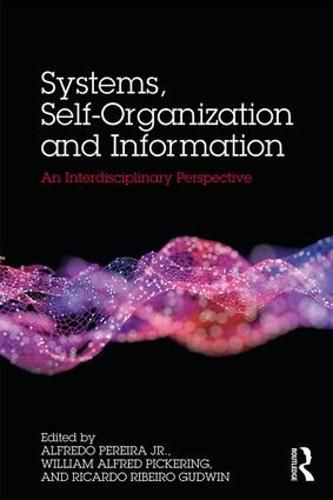Readings Newsletter
Become a Readings Member to make your shopping experience even easier.
Sign in or sign up for free!
You’re not far away from qualifying for FREE standard shipping within Australia
You’ve qualified for FREE standard shipping within Australia
The cart is loading…






Complex system studies are a growing area of central importance to a wide range of disciplines, ranging from physics to politics and beyond. Adopting this interdisciplinary approach, Systems, Self-Organisation and Information presents and discusses a range of ground-breaking research in complex systems theory.
Building upon foundational concepts, the volume introduces a theory of Self-Organization, providing definitions of concepts including system, structure, organization, functionality, and boundary. Biophysical and cognitive approaches to Self-Organization are also covered, discussing the complex dynamics of living beings and the brain, and self-organized adaptation and learning in computational systems. The convergence of Peircean philosophy with the study of Self-Organization also provides an original pathway of research, which contributes to a dialogue between pragmatism, semeiotics, complexity theory, and self-organizing systems.
As one of the few interdisciplinary works on systems theory, relating Self-Organization and Information Theory, Systems, Self-Organisation and Information is an invaluable resource for researchers and postgraduate students interested in complex systems theory from related disciplines including philosophy, physics, and engineering.
$9.00 standard shipping within Australia
FREE standard shipping within Australia for orders over $100.00
Express & International shipping calculated at checkout
Complex system studies are a growing area of central importance to a wide range of disciplines, ranging from physics to politics and beyond. Adopting this interdisciplinary approach, Systems, Self-Organisation and Information presents and discusses a range of ground-breaking research in complex systems theory.
Building upon foundational concepts, the volume introduces a theory of Self-Organization, providing definitions of concepts including system, structure, organization, functionality, and boundary. Biophysical and cognitive approaches to Self-Organization are also covered, discussing the complex dynamics of living beings and the brain, and self-organized adaptation and learning in computational systems. The convergence of Peircean philosophy with the study of Self-Organization also provides an original pathway of research, which contributes to a dialogue between pragmatism, semeiotics, complexity theory, and self-organizing systems.
As one of the few interdisciplinary works on systems theory, relating Self-Organization and Information Theory, Systems, Self-Organisation and Information is an invaluable resource for researchers and postgraduate students interested in complex systems theory from related disciplines including philosophy, physics, and engineering.